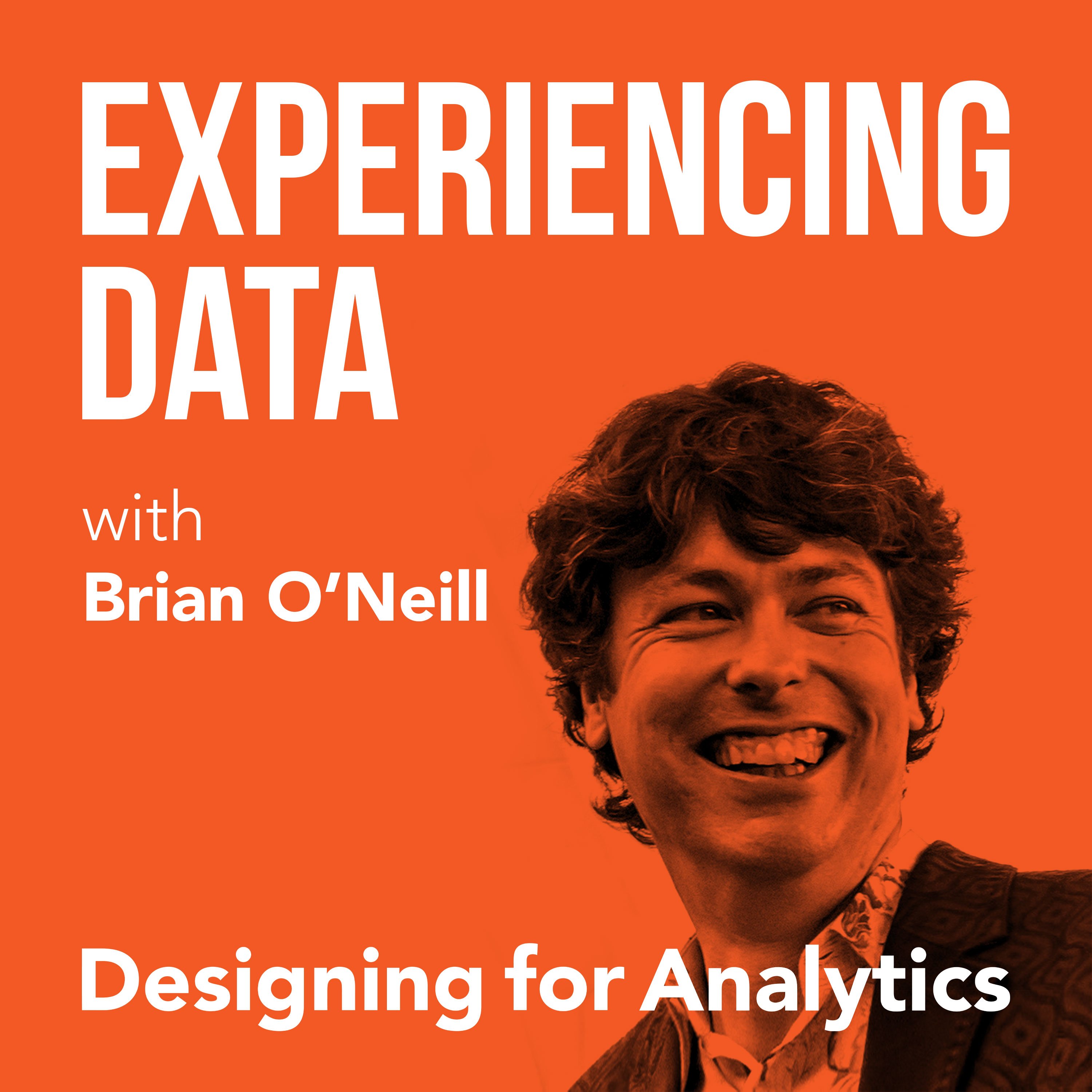

151.6K
Downloads
182
Episodes
Is the value of your enterprise analytics SAAS or AI product not obvious through it’s UI/UX? Got the data and ML models right...but user adoption of your dashboards and UI isn’t what you hoped it would be?
While it is easier than ever to create AI and analytics solutions from a technology perspective, do you find as a founder or product leader that getting users to use and buyers to buy seems harder than it should be?
If you lead an internal enterprise data team, have you heard that a ”data product” approach can help—but you’re concerned it’s all hype?
My name is Brian T. O’Neill, and on Experiencing Data—one of the top 2% of podcasts in the world—I share the stories of leaders who are leveraging product and UX design to make SAAS analytics, AI applications, and internal data products indispensable to their customers. After all, you can’t create business value with data if the humans in the loop can’t or won’t use your solutions.
Every 2 weeks, I release interviews with experts and impressive people I’ve met who are doing interesting work at the intersection of enterprise software product management, UX design, AI and analytics—work that you need to hear about and from whom I hope you can borrow strategies.
I also occasionally record solo episodes on applying UI/UX design strategies to data products—so you and your team can unlock financial value by making your users’ and customers’ lives better.
Hashtag: #ExperiencingData.
JOIN MY INSIGHTS LIST FOR 1-PAGE EPISODE SUMMARIES, TRANSCRIPTS, AND FREE UX STRATEGY TIPS
https://designingforanalytics.com/ed
ABOUT THE HOST, BRIAN T. O’NEILL:
https://designingforanalytics.com/bio/
Episodes

Tuesday Apr 09, 2019
Tuesday Apr 09, 2019

My guest today is Carl Hoffman, the CEO of Basis Technology, and a specialist in text analytics. Carl founded Basis Technology in 1995, and in 1999, the company shipped its first products for website internationalization, enabling Lycos and Google to become the first search engines capable of cataloging the web in both Asian and European languages. In 2003, the company shipped its first Arabic analyzer and began development of a comprehensive text analytics platform. Today, Basis Technology is recognized as the leading provider of components for information retrieval, entity extraction, and entity resolution in many languages. Carl has been directly involved with the company’s activities in support of U.S. national security missions and works closely with analysts in the U.S. intelligence community.
Many of you work all day in the world of analytics: numbers, charts, metrics, data visualization, etc. But, today we’re going to talk about one of the other ingredients in designing good data products: text! As an amateur polyglot myself (I speak decent Portuguese, Spanish, and am attempting to learn Polish), I really enjoyed this discussion with Carl. If you are interested in languages, text analytics, search interfaces, entity resolution, and are curious to learn what any of this has to do with offline events such as the Boston Marathon Bombing, you’re going to enjoy my chat with Carl. We covered:
- How text analytics software is used by Border patrol agencies and its limitations.
- The role of humans in the loop, even with good text analytics in play
- What actually happened in the case of the Boston Marathon Bombing?
- Carl’s article“Exact Match” Isn’t Just Stupid. It’s Deadly.
- The 2 lessons Carl has learned regarding working with native tongue source material.
- Why Carl encourages Unicode Compliance when working with text, why having a global perspective is important, and how Carl actually implements this at his company
- Carl’s parting words on why hybrid architectures are a core foundation to building better data products involving text analytics
Resources and Links:
- Basis Technology
- Carl’s article: “Exact Match” isn’t Just Stupid. It’s Deadly.
- Carl Hoffman on LinkedIn
Quotes from Today’s Episode
“One of the practices that I’ve always liked is actually getting people that aren’t like you, that don’t think like you, in order to intentionally tease out what you don’t know. You know that you’re not going to look at the problem the same way they do…” — Brian O’Neill
“Bias is incredibly important in any system that tries to respond to human behavior. We have our own innate cultural biases that we’re sometimes not even aware of. As you [Brian] point out, it’s impossible to separate human language from the underlying culture and, in some cases, geography and the lifestyle of the people who speak that language…” — Carl Hoffman
“What I can tell you is that context and nuance are equally important in both spoken and written human communication…Capturing all of the context means that you can do a much better job of the analytics.” — Carl Hoffman
“It’s sad when you have these gaps like what happened in this border crossing case where a name spelling is responsible for not flagging down [the right] people. I mean, we put people on the moon and we get something like a name spelling [entity resolution] wrong. It’s shocking in a way.” — Brian O’Neill
“We live in a world which is constantly shades of gray and the challenge is getting as close to yes or no as we can.”– Carl Hoffman
No comments yet. Be the first to say something!